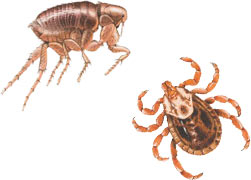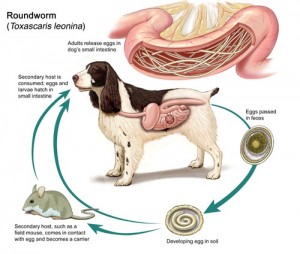FAQS
Frequently Asked Questions:
Q: What are vaccines?
A: Vaccines are health products that trigger protective immune responses in pets and prepare them to fight future infections from disease–causing agents. Vaccines can lessen the severity of future diseases and certain vaccines can prevent infection altogether. Today, a variety of vaccines are available for use by veterinarians.
Q: Is it important to vaccinate?
A: YES! Pets should be vaccinated to protect them from many highly contagious and deadly diseases. Experts agree that widespread use of vaccines within the last century has prevented death and disease in millions of animals. Even though some formerly common diseases have now become uncommon, vaccination is still highly recommended because these serious disease agents continue to be present in the environment.
Q: Which vaccines should my pet receive?
A: When designing a vaccination program, veterinarians consider your pet’s lifestyle, related disease risks, and the characteristics of available vaccines. “Core vaccines” (e.g. rabies, feline panleukopenia, feline viral rhinotracheitis, feline calicivirus, canine distemper, canine parvovirus, and hepatitis) are recommended for most pets. Additional “non-core vaccines” (e.g. feline leukemia, canine bordatella, and other vaccines) may be appropriate based on the pet’s particular needs.
Q: How often does my pet need to be vaccinated?
A: Veterinarians have traditionally vaccinated annually; however, we are now learning that some vaccines induce immunity that lasts less than one year, whereas others may induce immunity that lasts well beyond one year. The American and Canadian Veterinary Medical Associations recommend that veterinarians customize vaccination programs to the needs of their patients. More than one vaccination program may be effective. We will personalize your pet’s vaccination program.
Q: Why do puppies and kittens need more than one vaccine a year?
A: Very young puppies and kittens are highly susceptible to infectious diseases. This is especially true as the natural immunity provided in their mother’s milk gradually wears off. To keep gaps in protection as narrow as possible and to provide optimal protection against disease for the first few months of life, a series of vaccinations are scheduled, usually 3-4 weeks apart. For most puppies and kittens, the final vaccination in the series is administered when they are 16 weeks of age.
Q: What do I need to know about Heartworm?
A: Heartworm disease is preventable, but serious and potentially fatal, parasitic disease that primarily affects dogs, cats, and ferrets. It can also infect wild animals. Geographically, heartworms are a potential threat in British Columbia, Manitoba, Ontario and Quebec as well as in every state in the United States excluding Alaska. Heartworm is not a significant risk in Alberta so we only recommend prevention for those pets that travel outside the province. Heartworm is transmitted from animal to animal by mosquitoes. The larvae travel through the blood vessels to the heart. If they continue to multiply they can cause severe heart and lung problems.
Q: Can heartworm disease be prevented?
A: Heartworm disease is almost 100% preventable in dogs and cats. We will recommend the best method of prevention based upon your pet’s risk factors and lifestyle.
Q: What do I as a pet owner, need to know a bout Lyme’s disease?
bout Lyme’s disease?
A: Recently the tick species that is known to carry Lyme’s disease had been found in areas around Edmonton. Only a percentage of these ticks actually are carrying the bacteria that cause Lyme’s disease. Lyme’s disease in dogs usually causes fever, anorexia and lameness. There is an available vaccine for prevention of Lyme’s disease. However, veterinary infectious disease experts advise that the Lyme’s vaccine NOT be given routinely except to those dogs at very high risk of picking up ticks, such as hunting dogs. For all other dogs the best method of Lyme’s disease prevention is to prevent dogs from picking up ticks. We can recommend an approved tick control medication for your pet.
Q: What are worms?
A: Worms are internal parasites and single-celled organisms that can exist in the intestines of dogs and cats. The most common worms are roundworms, hookworms, whipworms and tapeworms. Roundworms are the most common intestinal parasite in dogs and cats. Hookworms are the second most common internal parasite. Whipworms get there name from their whip-like shape. Tapeworms got their name because they are thin and flat, like a strip of tape. Unlike smooth-bodied roundworms, hookworms, and whipworms, tapeworm’s bodies are actually made up of joined segments.
Q: How are they spread?
A: Animals with worms pass the infection t o other animals when the worm eggs develop into larvae and are present in the animal’s feces. Your pet can pick up the infection by eating infected soil, licking contaminated fur or paws, or by drinking contaminated water. Dogs and cats become infected with tapeworms when they eat infected fleas. They can also get a certain types of tapeworms by eating infected rodents.
o other animals when the worm eggs develop into larvae and are present in the animal’s feces. Your pet can pick up the infection by eating infected soil, licking contaminated fur or paws, or by drinking contaminated water. Dogs and cats become infected with tapeworms when they eat infected fleas. They can also get a certain types of tapeworms by eating infected rodents.
Infected female dogs may pass the infection to their puppies before birth or afterwards when they are nursing. Infected female cats cannot infect their kittens before birth, but can pass on the infection through their milk when kittens are nursing.
Q: What are the health risks to my pet?
A: Roundworms live in the small intestine were they steal nutrients from the food your pets eat. This can lead to malnutrition and intestinal problems. As the larvae move through your pet’s body, young animals may develop serious respiratory problems such as pneumonia.
Hookworms bite into the intestinal lining of an animal and suck blood. Left untreated, hookworm infections can result in potentially life threatening blood loss, weakness and malnutrition.
Whipworms bury their heads in the lining of the intestine and suck blood. Occasionally, severe infections can develop and lead to diarrhea, weight loss, and blood loss. This is rare, whipworm usually do not cause health problems.
Tapeworms live in the small intestine and steal the nutrients from the food your dog or cat eats. An infection is usually diagnosed when the egg sacs are seen under the pet’s tail or in on its stool. These sacs look like flattened grains of rice. While there are several dewormers available that are effective against tapeworms, keeping your pet free of fleas and not letting them hunt mice or birds is the best preventative. Rarely are tapeworms a risk to people.
Q: What are the health risks to people?
A: Roundworm infections are zoonotic diseases, meaning that they are animal diseases that can be transmitted to humans. While direct contact with infected dogs and cats increases a person’s risk for roundworm infection, most infections come from accidentally eating the worm larvae or from larvae that enter through the skin. Left untreated, roundworms in people can cause serious health problems when the larvae enter organs and other tissues. This may result in lung, brain, or liver damage. If the roundworm larvae enter the eyes, permanent partial blindness can result.
Hookworm infections cause health problems when the larvae penetrate the skin. The larvae produce sever itching and tunnel-like, red areas as they move through the skin, and if accidentally eaten, can cause intestinal problems.
Whipworm and Tapeworm larvae rarely infect humans when they are accidentally eaten.
Q: How can I prevent/treat worm infections?
A: Healthy pets may not show outward signs of a worm infection. However, if you notice a change in your pet’s appetite or coat, diarrhea, or excessive coughing, see your veterinarian. In most cases, a simple fecal test can detect the presence of worm eggs or adult worms. If present, we will recommend a deworming program. A good way to prevent worm infections is by using one of several monthly preventatives that we have available.
Nursing female dogs and cats and their litter are also major source for the spread of infective eggs and larvae. If you have a new puppy or kitten, or a pregnant pet, we can advise you about deworming program that will reduce your family’s risk of infection.
Worm infections in humans can easily be prevented by practicing good hygiene and sanitation. Children should be discouraged from eating dirt and should not play in areas that are soiled with pet feces. Sandboxes should be covered when not in use. Adults and children should always wash their hands after handling feces and after contact with pets. Shoes should be worn when outside to protect feet from larvae in the environment, and raw vegetables should be thoroughly washed because they may have been contaminated by infected soil.
Dog droppings should be immediately picked up from public areas and from your yard to reduce the chances of contaminating the soil. Keeping cats indoors is an effective way to limit their risk of exposure to roundworms.






